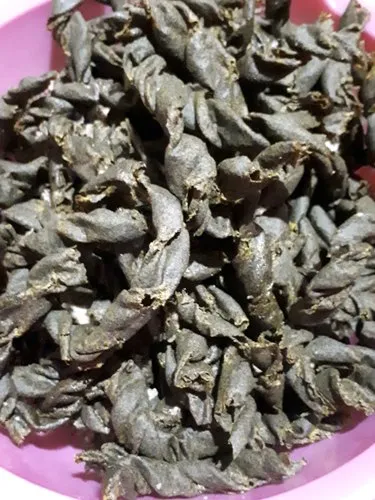Mustard Seed Oil Cake
₹29.0
| Product Type | Plant Based |
| Organic Matter | 90% |
| Water Soluble | Yes |
| Release Type | Slow |
| Shelf Life | 1 Year |
| Color | Brown |
Mustard Seed Oil Cake.
You must be logged in to post a review.
Q & A
Organic food products are generally considered more sustainable compared to conventional food products. Here are some reasons why:
Reduced Chemical Use: Organic farming practices prohibit the use of synthetic pesticides, herbicides, and fertilizers. Instead, organic farmers rely on natural methods such as crop rotation, biological pest control, and composting to maintain soil fertility and manage pests. By minimizing the use of harmful chemicals, organic agriculture reduces the environmental impact associated with conventional farming.
Soil Health: Organic farming emphasizes soil health by promoting practices such as organic matter incorporation, cover cropping, and minimal soil disturbance. These practices enhance soil structure, water retention, and nutrient content, leading to improved soil fertility and long-term sustainability. Healthy soils support diverse microbial communities and reduce erosion, nutrient leaching, and pollution.
Biodiversity Conservation: Organic farms tend to prioritize biodiversity conservation by providing habitats for beneficial insects, birds, and other wildlife. They often incorporate hedgerows, buffer zones, and natural pest control methods, creating an environment that supports diverse ecosystems. Preserving biodiversity is crucial for maintaining ecological balance, promoting pollination, and preventing the spread of pests and diseases.
Water Conservation: Organic farming techniques generally focus on efficient water management. By using techniques like mulching, drip irrigation, and water recycling, organic farmers can minimize water usage and reduce the risk of water pollution. Additionally, organic farming practices promote healthy soil structure, which enhances water infiltration and retention, reducing the need for irrigation.
Climate Change Mitigation: Organic farming can contribute to climate change mitigation through carbon sequestration in the soil. By emphasizing organic matter incorporation and minimizing synthetic inputs, organic practices enhance soil organic carbon content. This helps remove carbon dioxide from the atmosphere and store it in the soil, reducing greenhouse gas emissions.
While organic farming has several sustainability benefits, it is important to note that organic agriculture also faces challenges. Organic yields are often lower than conventional yields, leading to higher land requirements to meet the same level of production. Additionally, transportation and packaging considerations can impact the overall sustainability of organic food, especially if products are transported over long distances or packaged in excessive materials.
Overall, organic food products promote more sustainable agricultural practices by reducing chemical inputs, prioritizing soil health, conserving biodiversity, conserving water, and contributing to climate change mitigation.
General Inquiries
There are no inquiries yet.




Reviews
There are no reviews yet.